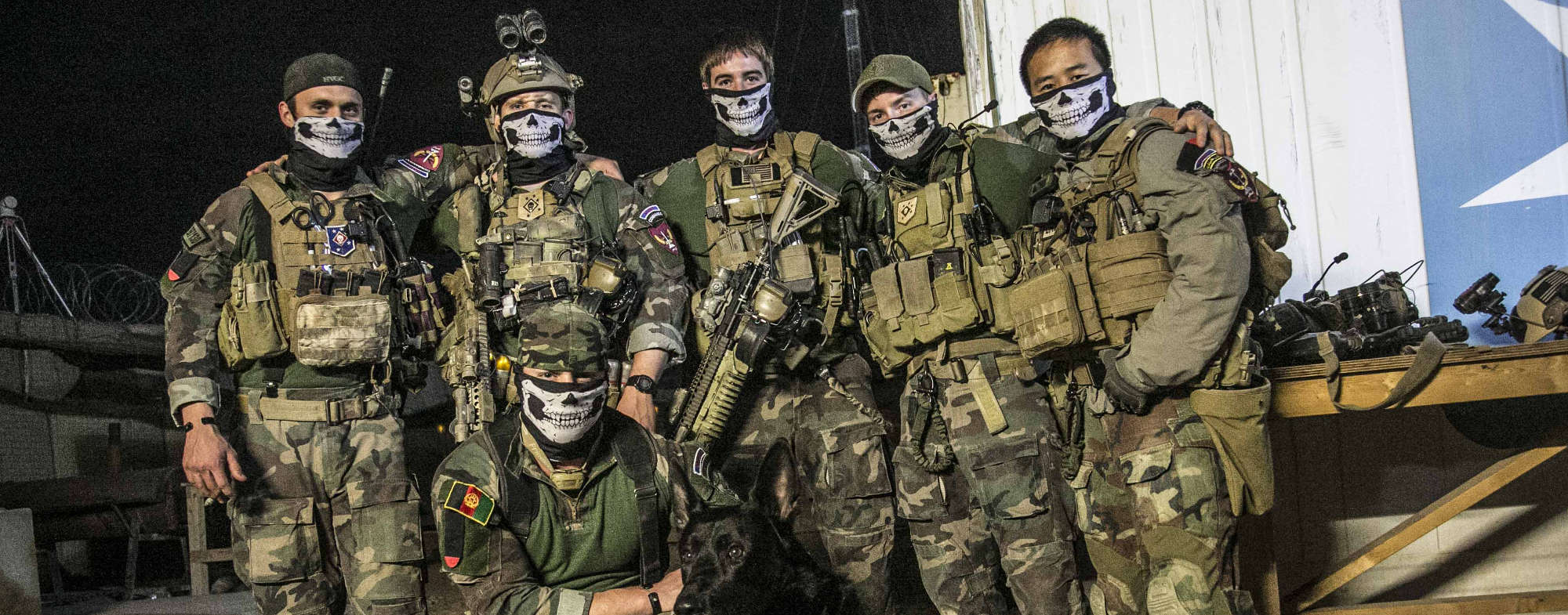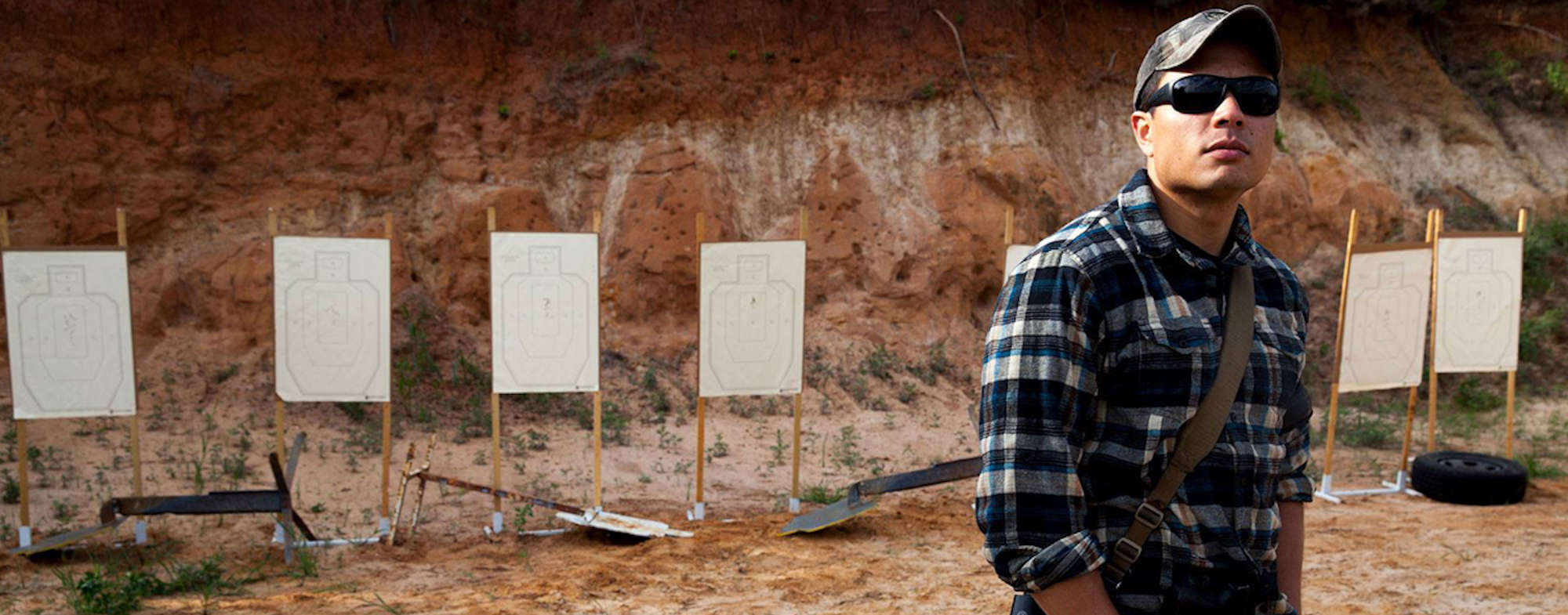Why High Performers Feel Awkward In Mediocre Groups, And What They Can Do About It
“Nothing is more frustrating than an underachiever that has loitered into a position of authority.” -Aaron of @GuerrillaApproach chimes in with his signature style of analysis in this guest blog spot.
“Leave the weak behind. You’re at selection to prove you’re the best, not someone that can only meet the standard with help.” - Special Forces Assessment and Selection Cadre circa 2005.
During the first few days of Special Forces Assessment and Selection (SFAS), candidates discuss their backgrounds and aspirations. Cliques form and gossip spreads. Although SFAS is mostly an individual event, it is impossible to forgo social interactions. After the first week, cliques begin to solidify and candidates hang out with each other based on perceptions of similarity. High performers hang out with high performers, low performers hang out with low performers.
In the woods during the second week’s practice land navigation courses, I was setting up my rest area when a candidate came stumbling into the position. This candidate had a rough day on the course and finished several hours behind everyone else. Looking for a vacant spot to relax, this candidate sat next to me and began emotionally unloading. He was frustrated, but everything was someone or something’s fault. I was tired, and not interested in talking, so I gave subtle replies.
This candidate was easy to ignore until he made the following comment: “Just being here is enough. Even if I fail, I’m satisfied with having made it this far.” I didn’t say anything, but thought: “How is failure... success?”
Prove Your Worth
A man’s reach should exceed his grasp. Our most defining experiences come from our willingness to exert all energies to overcome adversity. The next few days I’d see the same candidate in the rest areas after completing the day’s land navigation exercises. He was emotionally exhausted, a drowning man looking for any social comfort and solace. Unfortunately, the problem with aiding the drowning man is that in desperation, he might unintentionally drown the rescuer.
Other candidates would attempt to cheer up this individual. But he would hijack conversations and attempt to bring others down to his level of wallow and self pity. He was not discussing his hardships as a form of decompression, he was hoping that he’d find others that were suffering just as much as he was so that he could bring them down to his level. Misery loves company.
By the end of the second week, this individual was toxic to be around. He demotivated those around him and was incapable of displaying grit or resilience. But why didn’t you guys help him, isn’t the military all about teamwork? Teamwork is essential in the military, but we were being evaluated for a high risk unit. Men that needed to be motivated during SFAS were the exact same men that would need to be encouraged during combat when the stakes were much higher. You should be there for your teammates in battle, but they should first demonstrate that they won’t be a liability. This reality makes people uncomfortable, but this truth is at the core of any high performing team or culture.
Be Confident, Not A Dick
SFAS is a rare social environment in which the strong are encouraged to only uplift the strong. The men that are selected see little utility in external motivation because their drive is internal. A pat on the back or an “attaboy” is only well received if it truly feels earned. These dynamics contradict normal group interactions and can be why high performers struggle when outnumbered by those of lesser ability.
Whether you’re in the military, a first responder, or a civilian, if you’re an overachiever you’ve at some point experienced awkward group interactions with individuals that are painfully average. In fairness, everyone is entitled to choose his own lifestyle. But in a group dominated by mediocrity, you will second guess your purpose or whether your outlook is too aggressive.
In these types of environments, you’ve probably had to self-censor or tip toe around conversations so that you’re not perceived as a jerk. Unfortunately, a high sense of self confidence can easily be mislabeled as arrogance. High performing individuals are inspired by the presence of other overachievers. But among groups of average individuals, the overachiever triggers insecurities. Rather than acknowledging someone for his hard work, it's easier to go into mean girl mode and gossip about his reputation.
I see this quite a bit in online tactical and fitness communities. Rather than encouraging other members to excel, these groups viciously attack individuals and newcomers that challenge the status quo. Because the Internet rewires our perceptions of credibility, typically he who speaks the loudest and most often is perceived as having the most legitimacy. When enough of these types of individuals rally around each other, it forms a massive circle jerk that passively reinforces mediocrity.
Standards Matter
Whether in the workplace, at the gym, or on the shooting range, nothing is more frustrating than an underachiever that has loitered into a position of authority. Well, actually there is something more annoying: it’s when groups of underachievers loiter into communities and lower standards overall. Rather than attaining status through leadership and performance, we see mediocrity weasel its way in by dressing the part and regurgitating the right buzzwords.
Initially I wasted a lot of energy being upset with how this dynamic lowered training standards in the tactical community. I’d have students quit halfway through courses because they were hot or tired of being on their feet. Others that showed up to training only to wear plate carriers and take group selfies, then argue with fellow students about “tactics” despite having no real world experience. It was a real circus.
This frustrated me during my first six months of business. Unlike running a Special Forces range day, as a commercial instructor I was beholden to whether or not I could drive sales to fill a course. I didn’t want to be an instructor that ran tactical day care. I wanted to lead other high performers.
The problems I encountered with students that were unwilling to challenge themselves is an issue experienced in both the tactical and fitness communities. Although it is the duty of coaches and instructors to motivate and inspire, an individual’s drive is not simply switched on or off. Drive must be learned through self determination, a willingness to accept failure, and the patience to understand that growth takes time. Until this is accepted and understood, even the world’s best coaching and mentoring is useless.
Performance oriented groups that do not make their members aware of these values are really just trafficking in cleverly marketed leisure. This works because most underachievers are seeking an experience, not the pursuit of excellence. These individuals don’t want to truly challenge themselves to get better, they just want to be a part of something.
Of course, there is nothing wrong with the desire for community. Arguably, it shows signs of a healthy psyche and emotional stability. However, seeking community under the false assumption of self-improvement is just hanging out. This is problematic because regardless of our beliefs, in a group we will always conform to the group’s values and culture. We can’t fight this and are biologically wired not to upset those around us. This results in settling, and overtime allows mediocrity to overcome even the most dedicated high functioning individuals.
Attempting to avoid this effect by flying solo doesn’t work in the long run either. If we are always trying to improve, it is hard to accomplish this without having a buddy there to challenge and hold us accountable.

Lessons Learned About High Performers
At SFAS in 2005, I learned valuable lessons around high performers that would shape my behavior in combat, as a leader, and eventually as an entrepreneur. I learned that praise that precedes actions can actually demotivate, but also that everyone does at some point need to be encouraged and told they’re doing a good job. I learned that you will inevitably be forced to work with mediocre performers. Sink or swim attitudes might not work with these individuals, but holding their hand through an entire project is just as handicapping. Adapt your leadership style as necessary but never jeopardize accountability or creating a culture of excellence.
I also learned that your accomplishments will cause others to attack you. I went through Ranger School as a Green Beret. For some cadre this put a target on my back in which they would go after me, but it was ultimately lighthearted and just their method for pushing me to excel. For other cadre, it was their opportunity to troll me. If they could bring me down, expose a flaw, it would make them feel better about themselves, “I fixed that messed up SF guy.” These types of individuals are the hardest to navigate around when they are in authority positions. Set in their ways and actually wildly insecure, it’s best not to engage with these individuals and let your actions speak instead.
I learned that your reputation always precedes your actual arrival. During my first year of business with Guerrilla Approach, I marketed my courses as being more serious, and the pace of material more aggressive than standard classes. If I wanted to always make my sales goal I would just need to market my classes as intense then actually host mediocre courses that turn into “story time with the SF guy.” However, this lowers the bar for entry and demotivates high performers that are actually there to challenge themselves.
Rather than attracting the low hanging fruit and guaranteeing I would always sell out classes, I decided myself not to sell out and stay true to my values of leadership and accountability. Eventually word spread and a year later my classes would only fill with high performers.
Creating Cultures Of Excellence
Whether at SFAS, your crossfit gym, the shooting range, or the boardroom, cultures that promote excellence and accountability allow high performers to assume leadership. Standards are important because regardless of a group’s function, they become political and members become more concerned with not upsetting each other, rather than accomplishing the mission. Avoid this dynamic at all costs.
It is also okay to ask for help or encourage others, but always recognize the difference between hollow praise and actual mentorship. All the encouragement in the world could not have helped the struggling SFAS candidate in 2005 because he had already accepted failure as success. If this type of individual cannot be dismissed from a project or team, praise him for struggling, not underachieving, and be wary of committing the productivity fallacy of doing his work for him.
Even if you are a high performer, there are strong arguments that suggest you become the sum total of the five people you spend the most time with. In today’s era of digital communities, I’d further argue that we actually become the sum total of the content we consume the most. Surround yourself with cultures that challenge your pursuit of excellence, and be cautious of groupthink and complacency.

Aaron is the founder at Guerrilla Approach, where he teaches tactical marksmanship and vehicle tactics. He’s a part of the GWOT generation of SOF instructors that are modernizing training methodology, challenging stale doctrine, and shaming range theatrics.






